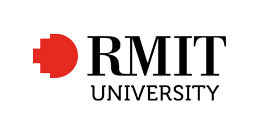
The Master of International Business program at RMIT University’s School of Management is highly regarded for its practical approach, international exposure, and industry connections. It is designed to equip students with the skills and knowledge needed to navigate the complexities of the global business environment. The program covers a wide range of subjects, including international marketing, global supply chain management, cross-cultural management, international finance, and strategic management.
Evaluation criteria
The Hinrich Foundation Guide is informed by input from an advisory panel of academics and business leaders who have highlighted six key trade course content areas and eight program attributes necessary for a quality master's-level trade education.
Trade course content
Trade course content is critical to a quality master's education that will prepare you for success in your international business and trade career.
Based on publicly available information, this program makes available the following trade content areas:
Trade program attributes
Trade program attributes reflected in the Hinrich Foundation Guide highlight the critical importance of how subjects are taught and by whom.
Based on publicly available information, this program reflects the following trade program attributes:
*View full list of evaluation criteria
Key highlights
Innovative teaching and learning
- Instead of large-scale, passive lectures led by professors, most classes at RMIT are delivered through active discussion and group projects to foster meaningful interactions between students, educators and industry guest speakers.
- Students will be assessed through a range of individual and group assignments, which includes case studies, business simulations, presentations and business appraisals.
Strong industry connections
- The School of Management has an Industry Advisory Board consisting of high-profile business leaders, such as chief executives and directors from National Australia Bank, Ericsson, Deloitte and Victoria Police. The board guides the strategic development of the school, both nationally and internationally, and provides expert advice to ensure its programs and research are relevant to industry requirements.
- Depending on their needs, students can choose to take an internship elective or start their own business during the program. Alternatively, the Fastrack Innovation Program allows students to be mentored by expert faculty and industry coaches to come up with a design-driven, innovative solution for paying clients.
Graduates of this program are granted membership into industry associations such as the Export Council of Australia and Institute of Managers and Leaders, assisting them to transition from university into their profession and enjoy exclusive member benefits.
More information
The RMIT University’s Master of International Business program page is here
Download detailed program profile